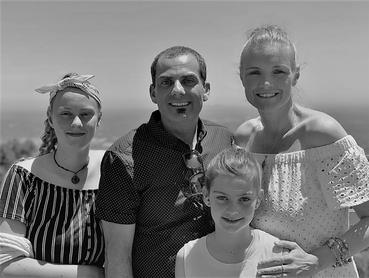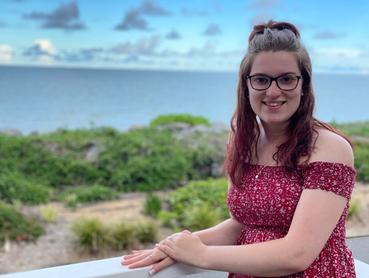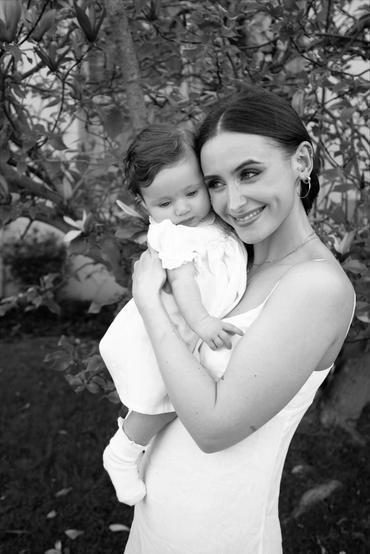My Story, My Career Path - Nathan Borg (actor in Neighbours)
At 3 months old Nathan contracted bacterial Meningitis and as a result Nathan is profoundly deaf.
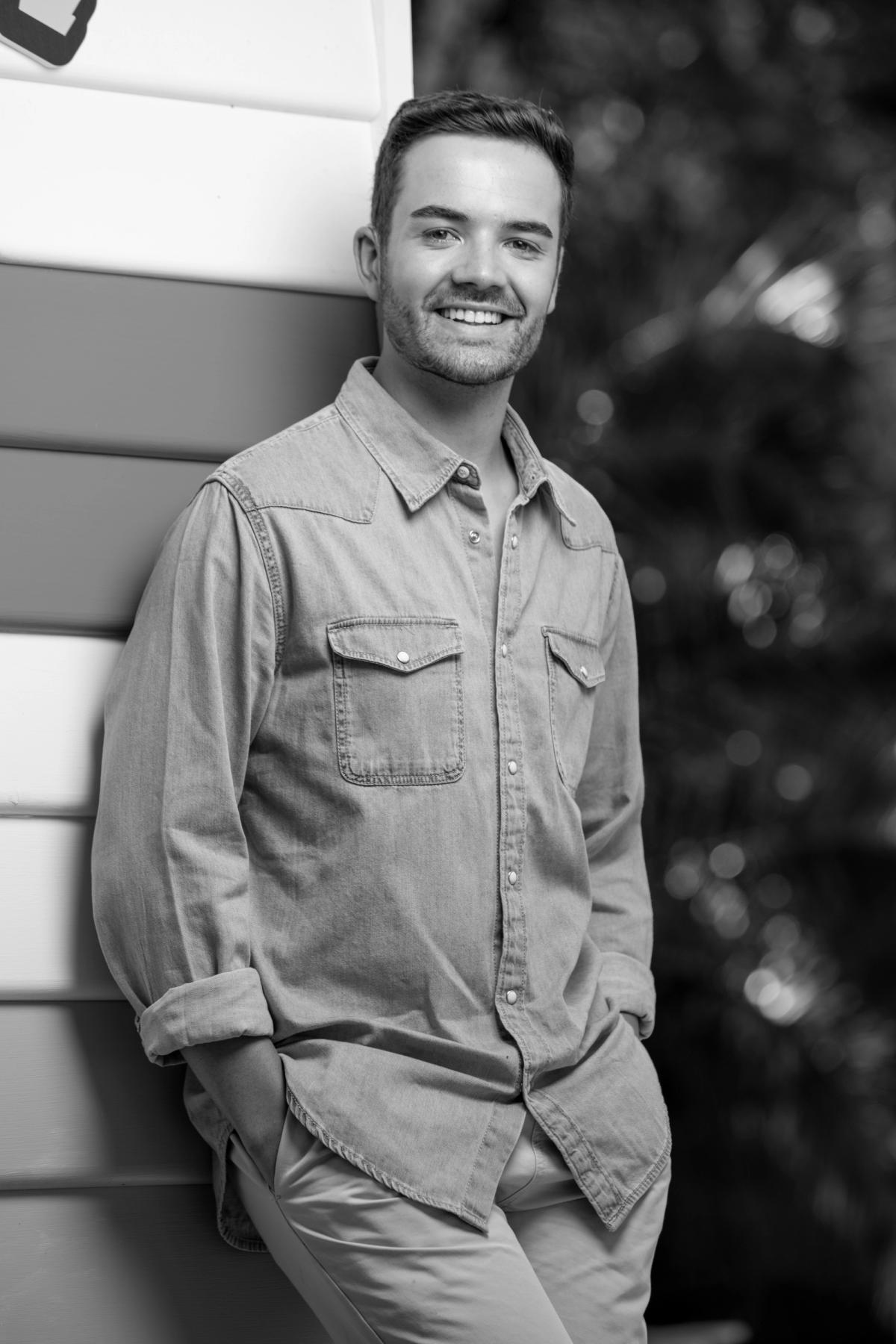
Tell us about your diagnosis as a child?
(Nathan)
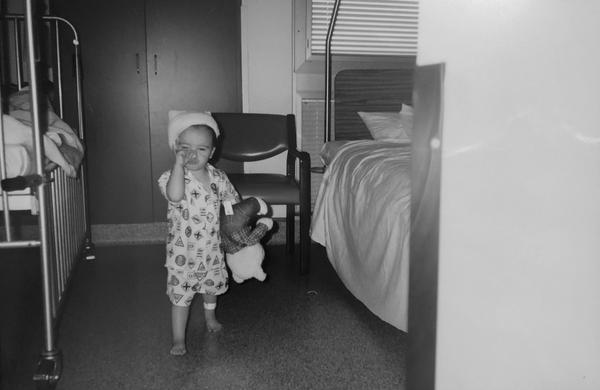
I was born with hearing. At the age of 3 months old I contracted bacterial Meningitis. The doctors informed my parents that Meningitis is life-threatening and the treatment, although it would save my life, could cause permanent side effects. For me that permanent side effect was profound deafness. But this was not known in the early days after my recovery.
Months went by, my parents noticed that I was not interacting in the way expected for my age. I wasn't responding to loud noises or turning to face them when they said my name. A maternal child health nurse came into our home to do tests and suggested that my parents to take me to ‘Hearing Australia’ in Ballarat to have my hearing tested. They did so and were given confirmation that I was profoundly deaf. This was a big shock to them. It was a hard process for my parents as they found there was minimal information on how to deal with the situation or what to do next. The main information they could get was from doctors which wasn’t always positive. There was no Google or Facebook for them to turn to for information or to find support groups. These things were not as easily accessible as they are today.
(Margaret: Nathan’s mother)
As a parent hearing the news that my son is profoundly deaf was quite a shock as I felt numb and not sure what the outcome was for Nathan’s future. How will he communicate by lip reading/signing or speech?
The audiologists told me that Nathan wasn’t a candidate for a hearing aid as he is profoundly deaf, but, we were told he could be a candidate for a cochlear implant. I knew nothing about what this was or how it worked and we did not have access to the internet to research information.
Nathan’s father and myself went to Eye & Ear Hospital to find out what cochlear implants are. We had lots of support from audiologists and surgeon Brian Pyman who explained the procedure and the potential outcome, both positive and negative.
We had on-going appointments with the audiologists at the hospital as they needed to do lots of tests on Nathan. They had to check for bone crowing in the ear as that could have had an impact on getting the cochlear implant. Thankfully Nathan got all the clear. Gromit's were placed in his ears to drain any fluid so more audiogram tests could be read to ensure that a cochlear would be ideal. Nathan did start wearing a hearing aid at home to start getting used to the feeling of what would be on his right ear. Our family and friends were supportive but some from the public were unsure as they knew nothing about what a cochlear implant was. Our conversations as husband and wife were very in-depth as we wanted to be totally comfortable with the decision that we would be making for Nathan. Gaining the knowledge I have learnt about the cochlear implant made me feel confident in sharing my experience and supporting any parent/s and adult who may be candidates for receiving a cochlear implant.
The process of navigating what was the best thing to do for my son was difficult because deaf awareness in 1998 was minimal. I think parents in these modern times are lucky to have access to online resources/Facebook groups/deaf companies to gain all sorts of different information.
If and what age were you fitted with a hearing aid or cochlear implant and what was that like?
(Nathan)
I was fitted with a cochlear implant at the age of 2 on my right side at the ‘Eye & Ear Hospital’. I don’t exactly remember this process but I do remember my head felt heavy and feeling unbalanced for a while.
When I was 18 years old, I did received the 2nd cochlear implant on my left side in 2014. I lasted 3 months with that cochlear, the sounds were different to my original right cochlear implant which I couldn’t push through so I decided to give up the left cochlear implant.
(Margaret: Nathan’s mother)
My husband and I, on activation day, were in a sound proof room with the audiologist and another observer from the ‘Cochlear’ team waiting to see Nathan’s reaction to his first sound. We (husband and myself) were wondering if it was working as we didn’t notice any reaction like crying or a surprised look from him as usually kids do.
The observer stopped the audiologist and said to us “it’s okay, it’s working” but how can she tell? Obviously, the look of concern on our face prompted the observer to stop and told us what sign to look for from Nathan. We needed to watch his eyes and from that, every time he felt a vibration his pupils would dilate. It became exciting to watch and a relief that the implant was successful. The completion of the day meant that Nathan could wear his cochlear implant and start his hearing journey. We had many visits to the Eye and Ear hospital for mapping sessions, speech therapy and on-going support. At home, Nathan started learning to analyse sounds and learning how to pronounce words for the first time.
Are you oral and if so, what was your experience like learning spoken language?
I am oral.
I have been oral since I received the cochlear implant. My mother and sister started to learn Auslan when I was diagnosed as profoundly deaf but Auslan became unknown in the household when I received the cochlear. I was taught bits of signs in Primary school from my integration aid but once he left the job, Auslan became unknown to me again. It is quite common for Auslan to become unknown in a hearing family or once you get the cochlear implant which is not a wrong choice but I do encourage parents who have children with cochlear implants to learn both speech and Auslan.
I had speech therapy every week at the Eye & Ear Hospital so this hospital had become a second home to me. I have heaps of video-tapes of me learning speech, it is truly amazing to see how my progress developed from the start to finish and just seeing how cheeky I was. There was one moment in the video-tapes, the speech therapist accidentally hit her head on the overhead microphone and I gave Mum the biggest facial expression of awkward! It’s hilarious.
Do you use Auslan, why did you decide to learn and at what age?
I am currently learning Auslan as I am not fluent in it. Recently, I got my NDIS plan approved which I am excited about because I am using my funds to do private sessions with a Deaf coach who will teach me Auslan, deaf history and culture. I do know that I will always be oral because I do love to speak. I started learning Auslan in 2018 at Expression Australia. I decided to learn Auslan because I came to a realisation that I was stuck in the middle of the hearing world and the deaf world. I didn’t know many deaf people so I knew that to start learning Auslan would open up opportunities for me to connect with others like me.
I am not disappointed at my parents for not teaching me Auslan as there is no point for staying unhappy about something in the past.
I made the choice to learn Auslan myself which my parents have been supportive of. For any parent that has a deaf child who has recently got a cochlear implant or hearing aid, there is no right or wrong. I would encourage you to let your child learn speech and Auslan. You don’t have to limit them with one form of communication.
How did you communicate within your family and amongst friends?
I usually stand or walk on the left side of the person so I can hear them through my (right side) cochlear implant as I cannot hear out of my left ear.
In loud areas; if I am at an event or at a club with my friends, I will rely on lip reading and facial expressions. Sometimes my friends or I will flip out the i-phones to type on notes to communicate.
I do crave silence. I love being in small groups and in quiet spaces. It sucks a lot of my energy when I am in big groups and in loud areas because I will have to work twice as hard to communicate. I don’t let this be an obstacle and let me miss out on things in life. I always try to navigate around it.
Tell us about going to school - what was that like? What were the worries you had that you remember?
Education wasn’t my thing. I struggled to understand sentences because as a deaf person and with my cochlear implants, I will rely mainly on the big key words in conversations. I will naturally ignore the little words between such as if, in, as, to, it, of, from, out, for, do...etc.
I had an integration aid with me at all times, in every single class to help me focus and understand sentences. There would be times I would be ashamed because other students would look at me differently or as the dumb student but I was luckily enough to have supportive friends through Primary and High school. Once I left school, film and TV scripts started to really help me pronounce words I had never said or seen before. It would help me figure out what the little words are in the dialogue. I do remember having a moment on a TV set that I would usually feel embarrassed about in school but moments like these, I laugh it off now. One of my lines was “marking” but I was pronouncing it as “marketing”. Words that are similar can confuse me but I will research how they both pronounce and what are the meanings of those words.
I was constantly bullied physically and verbally in High School because of my deafness which was tough but I learnt to let it go when I finished Year 12. Speaking about education, I do hope in the future that Auslan becomes a LOTE subject in every Victorian school for students to learn. In my opinion, I do think students will get more out of it than learning an overseas Language.
And tell us about going to Uni or TAFE - what was that like?
I didn’t go to University. I did go to a TAFE school for Year 12 and did full-time Arts Program with it. I was involved around doing acting and learning about theatre everyday which was such a good experience. I finished in 2014, and was offered to do the 1 year (full-time) Diploma Program that focused on film/tv which I accepted to attend. But, in 2015, I started my first week and the acting coach took me out of class, and told me that diversity isn’t up to date so I wouldn’t be accepted in the industry because of my deafness. She kicked me out on that same day. I was quite traumatised. My experience was half positive and half negative with TAFE. I don’t have any plans to do University but if I had to, it definitely will be somewhere around the film/tv industry. I do find it interesting that, a lot of people I know that have disliked Uni and dropped out early, or tried it again and dropped out again. So there is a part of me isn’t interested doing University. I rather spend my money to go explore Europe, haha!
What influenced your career choices?
In 2015, I actually was sitting on the couch, in the middle of night, watching scenes from TV shows such as Neighbours, Home and Away, Packed to the Rafters, Offspring, House Husbands, Winners & Losers etc. I really wanted to be a part of these type of shows. I started to dream to be in every Australian family drama show and it clicked (influenced) to me. I had the light bulb moment. I realised how lacking in diversity the industry was on screen.
I knew I had to change many professional minds, to prove them wrong. I knew it was going to be a hard and long road specially when some professionals didn’t believe in me. I do think it was around 5 years ago when I saw our industry start to bring in diversity but in a slow form.
Do you love what you do?
I am an actor. I do absolutely love this job, I get to be different characters, be in different stories, learn both sides of stories and characters inside and out. It really gives you a good perspective on human behaviours. I get to explore some stories or behaviours that don’t present in my real life which can be exciting. I’m always looking for gritty work because my life isn’t so gritty after all! I am a newcomer to the Australian industry and to be on on Australia’s national screens has been the real dream! This has been the proudest moment of my life and I hope I get to stay in this industry for the rest of my life and push for diversity in this industry. I know if acting doesn’t rise in the future, I will definitely jump onto an entertainment talk show as a TV presenter. What I love about this job is that it gives you high challenges as once you walk into the studio, you are walking into the unknown and that’s exciting.
What are your main challenges? And how did you overcome them?
My main challenges are with loud noises (music, trucks, horns, motorbikes, yelling) which I manage to overcome these in the spur of the moment as these type of noises are something that happens by naturally in life. I tend to get away from that noise or take off my cochlear for a moment. I do pretty well in clubs and bars, I rely on reading people’s lips but it can get tiring and overwhelming after a certain period of time, the less people the better.
I do have challenges with certain speech and accents. My cochlear implant doesn’t always pick up enough to get a clear understanding of poor speech or a strong accent. To overcome it, I will ask them to repeat or write it down. I didn’t have the confidence to ask this while growing up which I would do that fake nod and laugh. As an adult now, I have grown to be confident to ask to repeat or write but I do have hilarious moments when people might say something from a far distance and if I didn’t hear it, I will literally just smile and keep walking because sometimes I will be too lazy to even wanna try figure out the words, haha. It does take time to get comfortable to openly asking what works best for you in conversations.
My biggest challenge would be getting access to captions. Growing up in the late 90s and early 2000s, captions were hard to access so I would have to miss out a lot and had to figure on my own what I heard on screen. In my experience I believe that I’ve noticed that captions are very accessible but there are definitely areas we can improve. I do think we are moving forward with better access to this. I always loved going to the cinemas but it was extremely hard because captions weren't available. They do have closed captions which I didn’t like the process of . You would have to carry this bulky caption machine with you into the cinema room and the stares from others wasn’t fun. I tried it once, wasn’t a nice experience so I didn’t go back to the cinemas for a long time because I felt ashamed. I think open captions came in 2019 at the cinemas, I think? But it has been a lifesaver so now I go back to the cinemas. The only thing is I will have to find OC on sessions for the movie and will have to go to that certain date/time to access that.
My other biggest challenge is having my cochlear implant batteries with me. They usually last for 3 days but sometimes go flat earlier. I always have a battery packet in my pocket 24/7 but what can be challenging is I always have to make sure batteries are intact and not empty. Sometimes I accidentally find more than 1 packet in my pockets or in my bags because I would constantly grab a packet before I leave the door but there would be times I would forget and I won’t able hear ... then I will manage without the cochlear implant.
What key message would you give parents who are starting out their journey with a deaf/hard of hearing child?
My best advice to give to parents is;
⁃ support your child as much as you can, it is a long-term recovery and journey to process through. It will be a emotional journey, so just cry. It’s healthy.
⁃ encourage your child to be involved around the hearing and deaf communities.
⁃ document the journey as much as you can because it will be a beautiful thing to watch, even one day to show your child their unique journey.
⁃ just breath, learn, watch and trust yourself.
⁃ the choice of your child getting a cochlear, hearing aid or none. There is no right or wrong choice.

